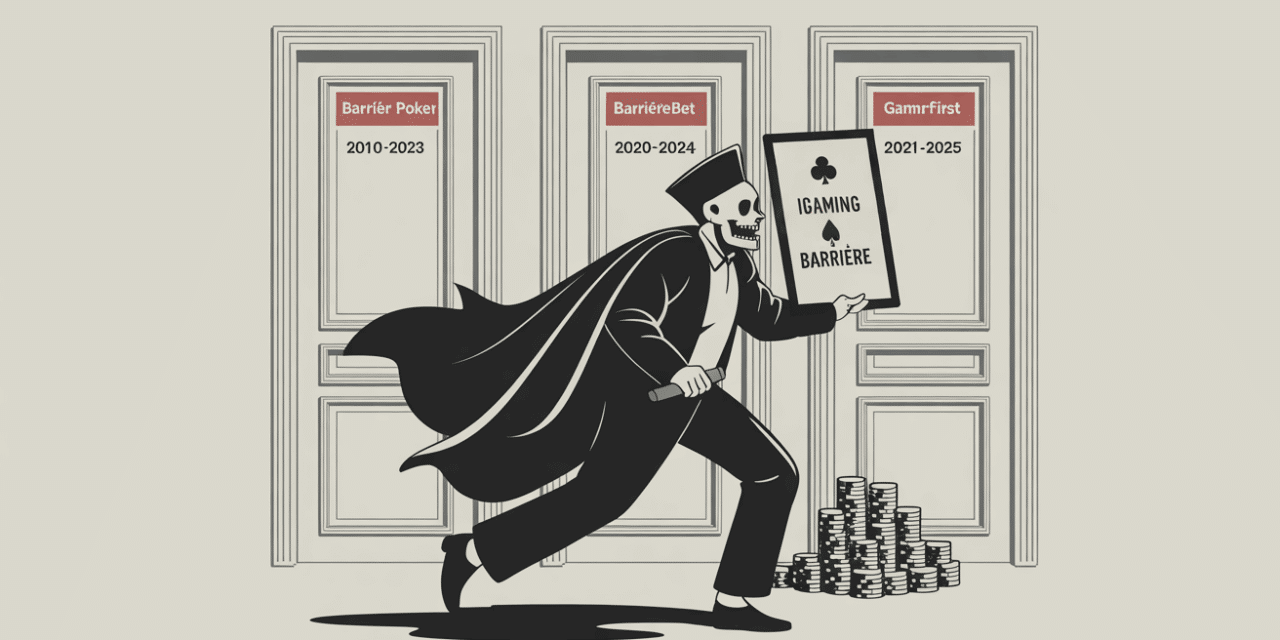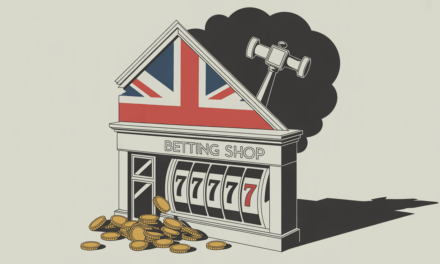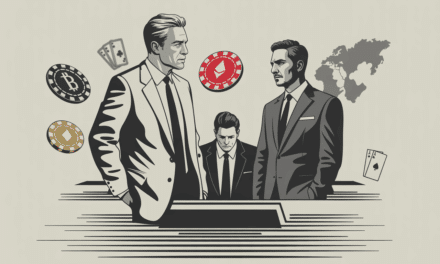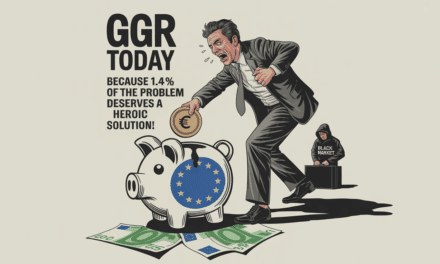Groupe Barrière’s latest retreat reads like a tragic sequel to a bad bet. Just weeks ago, on October 2, 2025, the French casino titan quietly pulled the plug on GamrFirst, its beleaguered online gambling platform in Switzerland. Launched in 2021 as a digital lifeline for Barrière’s land-based empire, GamrFirst sputtered to a close on October 30, capturing a pathetic less-than-3% market share amid a sector booming 8.5% year-over-year.
This isn’t just another startup casualty; it’s the latest exhibit in Barrière’s hall of digital shame, a pattern of failures that exposes deep-rooted flaws in their strategy. And here’s the brutal truth: Barrière’s aggressive push for a monopoly on France’s long-awaited online casino market isn’t born from confidence—it’s a desperate hedge against their proven incompetence in the online arena. If they were half as good as their Belle Époque facades suggest, they wouldn’t need to rig the game.
The GamrFirst Fiasco: A Microcosm of Barrière’s Online Allergy
In fiscal 2024, the platform – tied to the license of Barrière’s Montreux casino – generated a measly 7.25 million Swiss francs (CHF) in gross gaming revenue (PBJ), ranking dead last among Swiss online operators. For context, competitor Partouche raked in 22.4 million CHF, while MyCasino.ch (backed by Lucerne’s license) crushed it at 98.4 million CHF. That’s not a slowdown; that’s a speed bump Barrière couldn’t navigate because they arrived fashionably late – two years after the market’s pioneers had already locked in user loyalty. Dig deeper, and the root causes emerge like aces from a marked deck. Barrière’s vaunted land-based prestige, honed over decades in opulent halls from Deauville to Enghien-les-Bains, translates to zilch in the pixelated poker rooms of iGaming. As one industry analyst quipped in the fallout coverage,
« Barrière excels at selling champagne flutes and velvet ropes, not SEO-optimized slots or affiliate-driven bonuses. »
Their digital offerings lacked the sticky innovation—think gamified loyalty programs or seamless cross-platform play—that keeps millennials and Gen Z glued to apps like Stake or Bet365. Instead, GamrFirst felt like a clunky transplant from the terrestrial world, burdened by outdated UX and zero viral marketing muscle.Financially, it’s a bloodletting. While exact sunk costs remain buried in Barrière’s ledgers, the venture’s four-year run drained resources without a single quarter of profitability. Compounding the pain: Barrière’s Swiss land-based casinos saw PBJ plummet 14% between 2023 and 2024—double the national average decline of 5.8%—as players fled to digital alternatives they couldn’t compete with.
Nearly two dozen employees now face redeployment or the job market, a human cost glossed over in the group’s anodyne social plan. Sarcasm aside, this isn’t innovation Darwinism; it’s a failure to evolve, rooted in a boardroom blind spot where executives prioritize marble floors over machine learning.
Barrière’s Hall of Digital Horrors: A Pattern, Not a Blip
Until Barrière overhauls its C-suite with Silicon Valley transplants or at least a crash course in growth hacking, these failures will persist like a bad habit at the baccarat table.
France’s Online Casino Stalemate: Barrière’s Monopoly Gambit as Symptom of Weakness
Their Swiss and French digital debacles prove they can’t slug it out in a fair fight against global sharks like Evolution Gaming or DraftKings affiliates. A truly competitive French market would expose their inadequacies: subpar platforms, feeble marketing ROIs, and a brand that’s catnip for boomers but wallpaper for under-35s. By angling for monopoly status—perhaps through exclusive ARJEL concessions or FDJ alliances—they aim to stifle innovation, hobble newcomers, and coast on regulatory moats rather than merit.Ironically, Barrière’s own execs have voiced qualms about liberalization, citing addiction risks and market saturation.
Yet their actions scream self-preservation. GamrFirst was ostensibly a « learning lab » for France, a low-stakes sandbox to hone online chops. It bombed spectacularly, underscoring that Barrière’s DNA is terrestrial dominance, not digital Darwinism. Grant them monopoly power, and France gets a sanitized, second-rate product—think sanitized slots without the edge that makes iGaming addictive (in the best, responsible way). Deny it, and they risk irrelevance as agile entrants flood in.
The Bigger Bet: Time for Barrière to Fold or Go All-In?
Disclaimer: This article and its accompanying images may have been enhanced using AI tools to ensure smoother content delivery and visual appeal.





